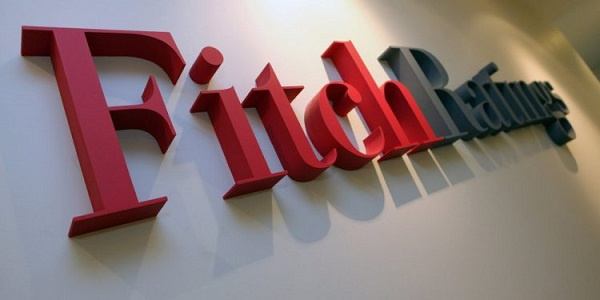Fitch Ratings has revised the outlooks on FBN Holdings Plc's and its main operating subsidiary First Bank of Nigeria Limited’s (FBN) Long-Term Issuer Default Ratings (IDRs) to positive from stable and affirmed the IDRs at 'B-'.
The revision of the outlooks mirrors the recent sovereign Outlook revision and reflects Fitch's view that Nigeria's Long-Term IDRs are likely to represent less of a constraint on the issuers' standalone creditworthiness in the near term.
The UK-based firm also affirmed the issuers' National Long-Term Ratings at 'A’ with stable outlooks.
“FBN and FBNH's IDRs are driven by their standalone creditworthiness, as expressed by their Viability Ratings (VRs). The VRs reflect the banks' high sovereign exposure relative to capital and the concentration of their operations in Nigeria. The positive outlooks on the Long-Term IDRs mirror that on the sovereign. The National Ratings balance a strong franchise, healthy profitability and a stable funding profile against high credit concentrations and thin capital buffers”, it mentioned.
Challenging Environment
President Tinubu has pursued key reforms since he assumed office in May 2023, reducing the fuel subsidy and overhauling monetary policy, including allowing the naira to devalue by over 65%.
Fitch said the reforms are positive for Nigeria's creditworthiness and foreign exchange market liquidity but pose near-term macro-economic challenges for the banking sector.
Strong Franchise
FBN is Nigeria's third-largest bank, representing 10.7% of banking system assets at end-2023.
Fitch said its strong franchise supports a stable funding profile and low funding costs. Revenue diversification is significant, with non-interest income typically exceeding 40% of operating income.
High Sovereign Exposure:
The single-borrower credit concentration is material, with the 20 largest loans representing 354% of FBN's total equity at end-quarter one 2024.
The UK-based firm said oil and gas exposure (end-2023: 33% of gross loans) is greater than the banking-system average.
Again, sovereign exposure through securities and cash reserves at the Central Bank of Nigeria (CBN) is high relative to FBNH's Fitch Core Capital.
High Stage 2 Loans
FBNH's impaired loans (Stage 3 loans under IFRS 9) ratio increased slightly to 4.9% at end-2023 (end-2022: 4.7%) due to operating environment challenges.
Specific loan loss allowance coverage of impaired loans was 40% at end-2023. Stage 2 loans remain high (end-2023: 20% of gross loans; concentrated in the oil and gas sector and largely US dollar-denominated) and represent a key risk to asset quality, having inflated due to the devaluation.
Fitch forecasts the impaired loans ratio will increase moderately in the near term.
Latest Stories
-
Bawumia joins thousands in Kumasi for burial prayers for Ashanti Regional Imam
20 minutes -
Blue Gold Bogoso Prestea Limited challenges government actions in court
47 minutes -
Patrick Atangana Fouda: ‘A hero of the fight against HIV leaves us’
2 hours -
Trinity Oil MD Gabriel Kumi elected Board Chairman of Chamber of Oil Marketing Companies
2 hours -
ORAL campaign key to NDC’s election victory – North America Dema Naa
2 hours -
US Supreme Court to hear TikTok challenge to potential ban
2 hours -
Amazon faces US strike threat ahead of Christmas
3 hours -
Jaguar Land Rover electric car whistleblower sacked
3 hours -
US makes third interest rate cut despite inflation risk
3 hours -
Fish processors call for intervention against illegal trawling activities
3 hours -
Ghana will take time to recover – Akorfa Edjeani
4 hours -
Boakye Agyarko urges reforms to revitalise NPP after election defeat
4 hours -
Finance Minister skips mini-budget presentation for third time
4 hours -
‘ORAL’ team to work gratis – Ablakwa
4 hours -
Affirmative Action Coalition condemns lack of gender quotas in Transition, anti-corruption teams
5 hours

